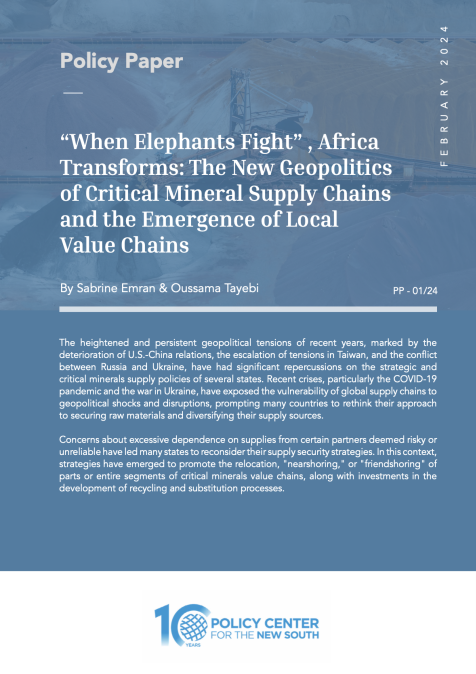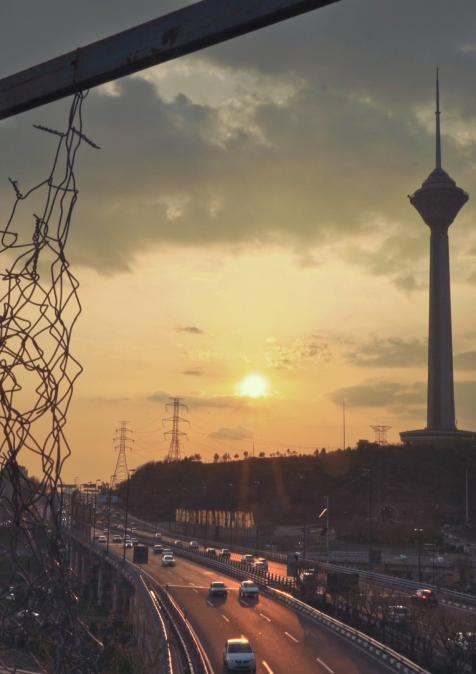Why work at the Policy Center? What it is like to work there? Discover our Think Tank through the testimonials of our team! Rim Berahab, Yassir Essyagi, Mandri Badr, Amal El Ouassif, Akram Zaoui.. Find out more about them & what they have to say about the Policy Center. More on policycenter.ma Join us: https://www.policycenter.ma/jobs-opportunities/join-us
Speakers

Rim Berahab
Senior Economist
Rim Berahab is Senior Economist at the Policy Center for the New South, which she joined in 2014. She is currently working on themes related to energy issues and their impacts on economic growth and long-term development. Her research areas also cover trade and regional integration challenges in Africa. Previously, she has also worked on questions related to gender inequalities in the labor market of North African countries. Rim spent three months at the International Monetary Fund (IMF), in 2016, in the Commodities Unit of the Research Department. She holds a State Engineering degree from the National Institute of Statistics and Applied Economics (INSEA).
...

Badr Mandri
Economist
Badr Mandri is an Economist who joined Policy Center for the New South after two years’ experience at the Moroccan national statistics office (HCP, High Commission for Planning). His research activities focus on development macroeconomics especially on fiscal policy and development financing. Badr Mandri holds a master’s degree in applied economics, and is currently a PhD student at Mohamed V University in Rabat;
...

Fatima Ezzahra Mengoub
Senior Economist
Fatima Ezzahra Mengoub, researcher, development specialist, and policy analyst, is a Senior Economist at the Policy Center for the New South. She holds a PhD. in Economics applied to agriculture and an engineering degree in agricultural economics both from the Hassan II Institute of Agronomy and Veterinary Sciences. Her research addresses agricultural and rural development including agricultural growth analysis, economic structural change, inter and intra-regional agricultural trade, water management, and food security. She has also taught macroeconomics, microeconomics, and decision-making courses at the Hassan II Institute of Agronomy and Veterinary Sciences (IAV), the School of Governance and Economics (EGE), and the Faculty of Governance, Economics, and Social Sciences (FG ...

Amal El Ouassif
International Relations Specialist
Amal El Ouassif is an International Relations Specialist at the Policy Center for the New South. Prior to this, she worked as a program coordinator at the Westminster Foundation for Democracy and served as a consultant in development policies with the office of the Deutsche Gesellschaft für Internationale Zusammenarbeit (GIZ) in Morocco. She is also a former bluebook trainee in the Directorate General of Employment Social Affairs and Inclusion in the European Commission in Brussels. Amal has a Master of Art in EU’s International Relations and Diplomacy Studies, from the College of Europe in Bruges and a Master in Development Studies from UPMF-Grenoble. Her area of interest include Africa- Europe cooperation and migration.
...

Akram Zaoui
Chargé de Mission to the Executive President
Akram Zaoui is a Senior International Relations Specialist and Chargé de Mission to the Executive President at the Policy Center for the New South (PCNS). Prior to this, he was Manager of Research Support and the Public Policy Lab at the PCNS. His main area of interest is the geopolitical economy of the Extended Middle East and North Africa (MENA) region.
From 2018 to 2020, Zaoui was the coordinator of a network of 70+ civil society organizations (CSOs) across France, working with foundations, government, local communities, and the private sector.
Zaoui holds a dual degree in corporate and public management from HEC Paris and Sciences Po, as well as a bachelor's degree (licence) in history from Université Paris 1 Panthéon-Sorbonne. He audited courses in Iranian and Shia Stud ...









